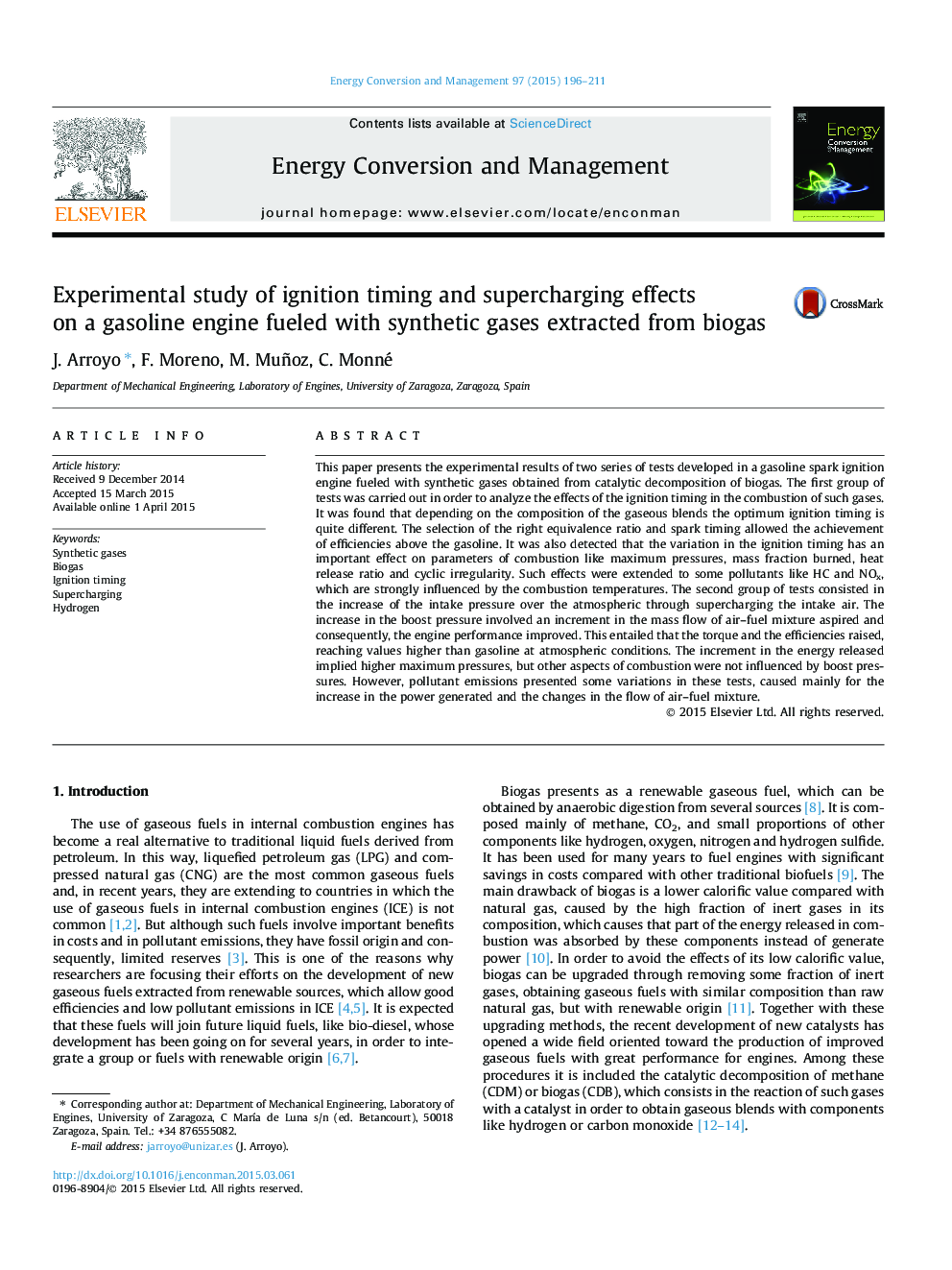| کد مقاله | کد نشریه | سال انتشار | مقاله انگلیسی | نسخه تمام متن |
|---|---|---|---|---|
| 760583 | 1462865 | 2015 | 16 صفحه PDF | دانلود رایگان |
• Ignition timing and supercharging tested in an engine fueled with synthetic gases.
• Syngas efficiencies higher than gasoline modifying the ignition timing.
• NOx increase with advanced ignition timings when synthetic gases were used.
• Supercharging implied benefits in efficiency and emissions with synthetic gases.
This paper presents the experimental results of two series of tests developed in a gasoline spark ignition engine fueled with synthetic gases obtained from catalytic decomposition of biogas. The first group of tests was carried out in order to analyze the effects of the ignition timing in the combustion of such gases. It was found that depending on the composition of the gaseous blends the optimum ignition timing is quite different. The selection of the right equivalence ratio and spark timing allowed the achievement of efficiencies above the gasoline. It was also detected that the variation in the ignition timing has an important effect on parameters of combustion like maximum pressures, mass fraction burned, heat release ratio and cyclic irregularity. Such effects were extended to some pollutants like HC and NOx, which are strongly influenced by the combustion temperatures. The second group of tests consisted in the increase of the intake pressure over the atmospheric through supercharging the intake air. The increase in the boost pressure involved an increment in the mass flow of air–fuel mixture aspired and consequently, the engine performance improved. This entailed that the torque and the efficiencies raised, reaching values higher than gasoline at atmospheric conditions. The increment in the energy released implied higher maximum pressures, but other aspects of combustion were not influenced by boost pressures. However, pollutant emissions presented some variations in these tests, caused mainly for the increase in the power generated and the changes in the flow of air–fuel mixture.
Journal: Energy Conversion and Management - Volume 97, June 2015, Pages 196–211
